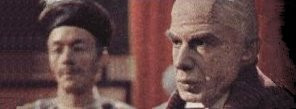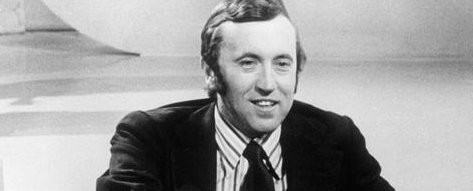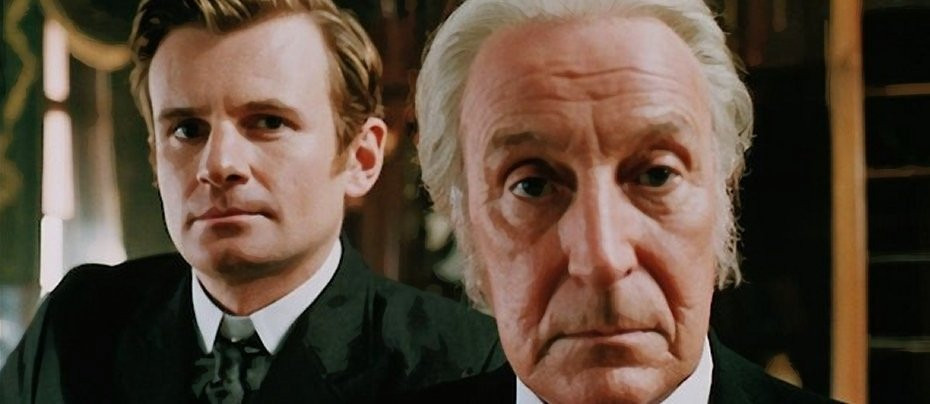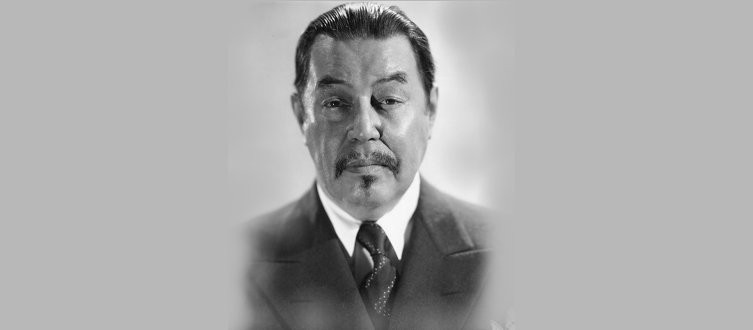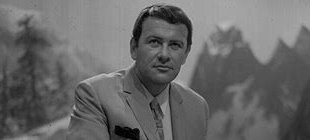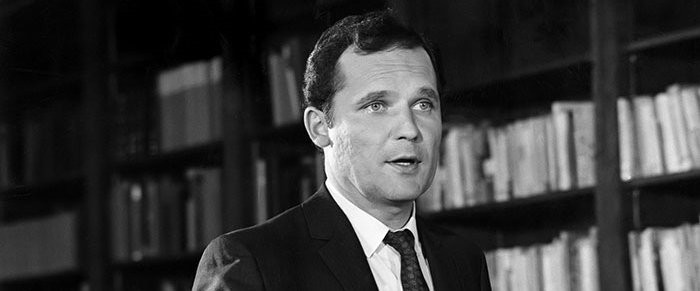
Wojeck
1966 - CanadaWojeck is perhaps best remembered as the show that changed the face of Canadian television drama. Up until the time of the series, Canadian dramas had been rather staid little affairs that rarely captured the interest of Canadian television viewers. But, when Wojeck appeared on CBC in 1966, Canadian television forever changed.
Wojeck was based on the exploits of real life Toronto coroner Dr. Morton Shulman and starred John Vernon as Dr. Steve Wojeck. Created by Phillip Hersch, the real-life cases of Dr. Shulman inspired each weekly episode. Shulman who was renowned as a health and safety crusader was well known in Toronto. Shulman extended the influence of his office through his inquiries into deaths caused by institutional and industrial negligence and forced issues of improved safety standards. Each week, over 3 million viewers tuned in as the title character addressed such issue as: abortion, drug abuse, poor working conditions, police brutality, abuse of the elderly, Native rights, auto safety, etc. And each week, viewers were gripped to their television sets.
The barriers that the series broke down were thematic as much as stylistic or technical. Under the guidance of Executive Producer Ronald Weyman and Associate Producer David Peddie, the writers explored issues that had rarely been confronted so directly in television drama. In fact the issue at their centre can categorize many of the programs as much as by the actual story.
Part of the success of Wojeck was as a result of its visual style. It was the first time the CBC had produced a filmed dramatic series for its national audience. Executive producer Ronald Weyman drew upon his experience at the National Film Board to deliver stories, which had the look of authenticity. This was especially true in the first season when each episode was in black and white. Weyman and Director of Photography Grahame Woods shot the black-and-white film production on location with a lightweight camera. Cameras were hand held and conventional production values were sacrificed for a down-and-dirty naturalism in the style of documentaries. The programme, and the series that ensued, tried to confront contemporary social issues through Wojeck's inquiries. The programme's documentary style and the roots of the stories in the headlines of the day established standards and format that has filtered through CBC television drama ever since.
John Vernon played Wojeck - stalwart, quiet and understated, Wojeck was frustrated or driven to outrage by people, officials, and institutions that failed to provide answers or acknowledge responsibility. He regularly questioned the decisions he had to make and though he was in many sense of the word, your typical hero, Wojeck was invested with a greater vulnerability and depth than most television heroes. Wojeck was of Polish descent and Catholic.
Patricia Collins played Wojeck’s wife Marty. Their marriage was very normal complete with typical problems most married couples would face. Oddly enough, the characters had been separated a few years when a reunion movie was made in 1992. Together they lived in the typical Canadian home of the time complete with plumbing problems and kitchen clutter. There was no up market fancy lifestyle for this family. Also seen were their two children Steve and Judy played by Jamey Weyman and Tanis Montgomery.
Other members of the cast included Ted Follows as Crown Attorney Arnie Bateman, and Carl Banas as Detective Sergeant Bryon James.
The series first hit Canadian television screens on March 9, 1966 as part of The Bob Hope Theatre with the pilot episode, "Tell Them The Streets Are Dancing". Wojeck investigates the death by caisson disease of an Italian worker, who had been working on the construction of underground tunnel. The ultimate investigation into the workers death leads Wojeck to file charges over unsafe working conditions.
Phillip Hersch wrote the scripts for the ten episodes of the first season. Directors featured in the season included, Ron Kelly, George McCowan, Paul Almond, and Daryl Duke. For the second series, which was produced in colour, Hersch wrote only the first two episodes, a two-part story called "Swing Low, Sweet Chariot". Other writers for the series included Lindsay Galloway, Sandy Stern, Len Barnett, John Gray, Jerry O'Flanagan, Ronald Dunn, and John Simpson. Cinematographer Wood’s first film script was also presented in the series, though under a pseudonym while the programme was in production called "After All, Who's Art Morrison?" The directors for the series were Peter Carter, Rene Bonnire, George Gorman, John Trent, George McCowan, and producer Weyman.
In the series debut episode, "The Last Man In The World" featured John Yesno as a young native who arrives in Toronto from northern Ontario. The complications of his new life in the city, the racial prejudice he encounters, the hooker he mistakes for a girlfriend, cause him to commit suicide in a jail cell. Unfolding in flashback structure, the story is driven by Wojeck's search for the source of the belt with which Joe hanged himself. Visually and aurally adventurous, directed by Ron Kelly from Hersch's script, the program stretches the conventions of television drama to gain both immediacy and dramatic, emotional power. In "After All, Who’s Art Morrison?" the series addressed gay issues in what was an intriguing and sympathetic script about a middle-aged homosexual and the blackmail plot that forces him to disclose his secret. While in, "The Cold Smile of Friends", Wojeck must confront his Catholic values when he is confronted by the issues of abortion.
Wojeck gained both critical and commercial success. "The Last Man In The World" won the Wilderness Award as the CBC's best film production of the year, and an award at the Monte Carlo Film Festival. The series was sold to foreign markets in the U.K., Sweden, Holland, Belgium, Ireland, Finland, and Yugoslavia. The series success, however, had as much to do with the subject, the script, and above all the acting. The writers for Wojeck created stories around a big city coroner and his quest for justice. The character and setting were novel twists on the very popular 1960s American genre of work-place dramas that focused on the exploits of such professionals as lawyers, doctors, and even teachers or social workers.
Ultimately, Wojeck was a victim of its own success. The source for weekly topics soon dried up and writers began scrambling for headlines to base their stories around. The show failed to find a US network buyer - they felt the series was too controversial and featured too much bad language - but they did like star Vernon and the show’s creator, Phillip Hersch. And while Dr. Shulman initially approved of the programme, allowing access to his files and offering his office for filming, he disassociated himself when the series ran Chrysler commercials featured new faster cars - death machines in the eye of the coroner. Surprisingly, the show was later relaunched a few years later in the U.S. as NBC’s Quincy, M.E.
Wojeck did return in a 1992 TV movie called Wojeck: Out of The Fire where he returned to Toronto in search of a baby killer and sought to reconcile with his long-suffering wife who had dumped him in 1978. Wojeck had no real successors. Weyman and others did produce a number of forgettable dramas in the next few years, but none could match the appeal of the imports. Ironically the very success of Wojeck had spelled trouble for CBC's drama department. John Vernon was lured away to Hollywood, where he came to specialize in playing villains. Indeed, Weyman later claimed that much of the talent which had contributed to the appeal of Wojeck was drawn away to the greener pastures in the United States. The memory of that brief, glorious moment was sufficient to justify replaying some of the episodes of Wojeck on the CBC network over twenty years later.
Seen this show? How do you rate it?
Seen this show? How do you rate it?
Published on February 12th, 2019. Written by Bob Furnell (2004) for Television Heaven.




